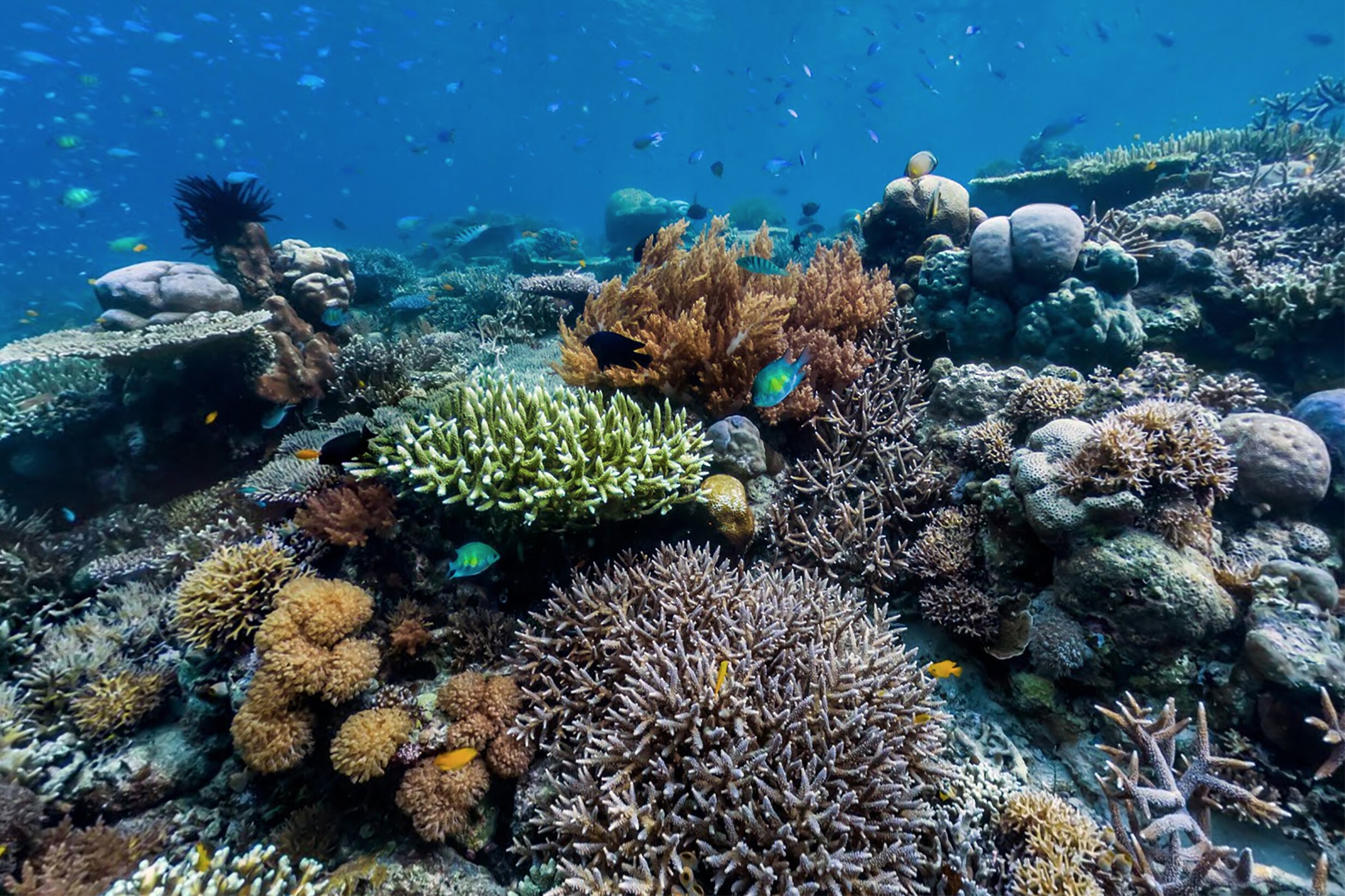
The Florida Coral Reef tract is the third largest barrier reef ecosystem in the World.
Florida is the only state in the continental United States with extensive shallow coral reef formations near its coasts. Coral reefs create specialized habitats that provide shelter, food, and breeding sites for numerous plants and animals. This includes ones important to fishing like spiny lobster, snapper, and grouper. Coral reefs lay the foundation of a dynamic ecosystem with tremendous biodiversity.
Florida's Coral Reef stretches approximately 360 linear miles from Dry Tortugas National Park west of the Florida Keys to the St. Lucie Inlet in Martin County. Roughly two-thirds of Florida's Coral Reef lies within Biscayne National Park and the Florida Keys National Marine Sanctuary, a marine protected area that surrounds the Florida Keys island chain.
Reef growth is relatively slow; individual colonies grow only one-half inch to seven inches a year, depending on the species. Coral reefs are in a constant state of flux, where new polyps (the living tissue) grow on the outer surface, while their skeleton erodes to help make the white sand for our beaches. During long periods of favorable conditions, the reefs may reach awe-inspiring heights and diversity.
Our reef in peril
Florida’s Coral Reef is an integral part of Florida’s Way of Life
From our beaches, mangroves, and seagrasses to our surfers, divers, fishers and beach lovers, Florida’s Coral Reef is a delicately balanced and interconnected community.
Floridians and visitors alike benefit from healthy and productive coral reefs. It’s up to us to help ensure that a strong and balanced community ecosystem exists now and into the future. Coral reefs protect our coast, provide a home for the seafood we eat and sustain our tourism-based economy.
Florida’s Coral Reef is susceptible to global and local stressors, including impacts associated with coastal construction, poor water quality, irresponsible fishing and diving practices, vessel groundings and anchor drags and marine debris impacts, to name a few.




